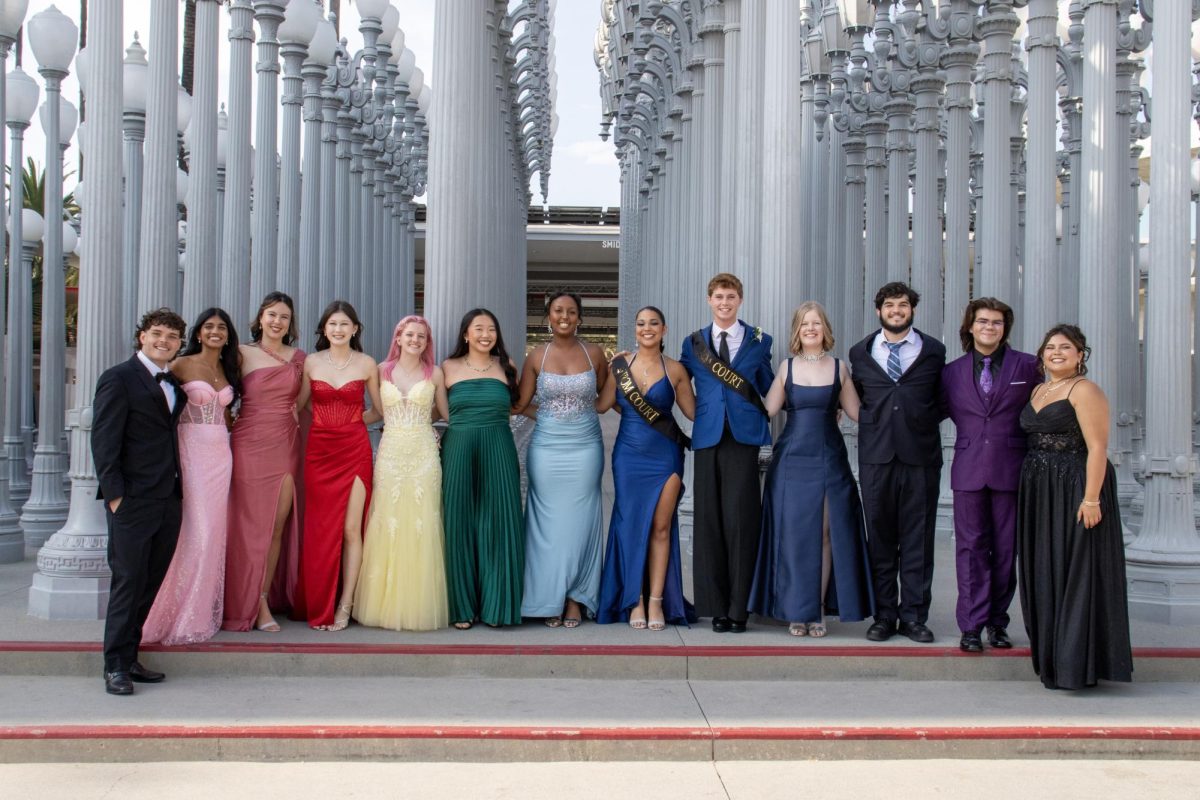The Paris Fuel Tax Protests
December 10, 2018
December 1st marked the third consecutive week of the rising gilets jaunes protests in Paris, France. It was part of one of the largest movements in France in decades, opposing the country’s planned increase in fuel taxes.
But on a larger scale, the ordinary people came together as a nation-wide movement not just against the fuel tax, but against what they consider mounting inequalities and injustices infringing on their lives. Called gilets jaunes for their yellow vests, the citizens’ protest movement began online through petitions and social media. It is made up of women, single mothers, secretaries, factory workers, students, fathers; those who are jobless and those with jobs. The protesters are all united by injustice―all over France, and without any set leader, trade union, or political party to officially support the movement.
But on December 1, the gilets jaunes took their right to protest to the famed Champs Élysées. By 3pm, there were 75,000 protestors on the streets, with an estimated 100,000 protesting throughout France. However, the peaceful demonstration turned violent.
More than 100 cars were burned; several buildings were set on fire, bank windows were smashed, and storefront windows on one of the most expensive shopping streets in Europe were destroyed.
Tear gas, water cannons, bulldozers, and rubber bullets were used by police on thousands of demonstrators from all over the country. The crowd responded by rebuilding their barricades and pushing back against the police. With more than 300 people taken into police custody.
Florian Dou, a struggling warehouse handler who drove 250 miles to join the Paris protests, said, “We knew they were sent in to get rid of us, and believe me, they were not into Mr. Nice Guy.”
According to a Harris Interactive poll, after the Champs Élysées riots, 72% of French people supported the gilets jaunes, but 85% disagreed with the Paris violence.
The first national Saturday of “yellow vest” protests occurred on November 11, moving from France’s outer, rural regions to Paris. There were roadblocks, barricading of roundabouts, and the blockading of fuel depots. The Arc de Triomphe was vandalized. 285,000 people participated across France, the highest number of protesters out of all other weekends.
On the second week, there were demonstrators at more than 2,000 locations throughout France. Joel Mouilleseaux, a 24-year-old student, said, “[We are] here because [we have] had enough. [It is] always the same people who have to pay for the madness of others. We have to work to pay, work some more to pay some more and [it is] been like that for years. [It is] been like it since I was born, president after president, and now [we are] saying, [that is] enough.”
Throughout France, by the end of the third weekend, there were three dead, more than 260 wounded, and 400 arrested.
For President Emmanuel Macron, the fuel tax riots are one of the biggest crises of his time in office. A BVA opinion poll on Friday, November 30 resulted in a 26% approval rating, the lowest his popularity has been. Macron’s plan to increase the tax on diesel and petrol came with the intention to promote green energy. The president also claimed that he would not give into the citizens’ demands.
However, the gilets jaunes proved Macron wrong on Tuesday, December 4, when Prime Minister Édouard Phillippe announced at a press conference that the tax increase would be pushed back six months to allow for the public to consider.
He said, “No tax is worth threatening the unity of the nation.”
However, some citizens are not entirely satisfied. Many of the gilets jaunes look beyond the immediate fuel taxes and push for a review of the tax system, a raise of the minimum wage, and a dismantling of Macron’s tax cuts for the wealthy, among a number of things. The movement is restless for change.
A 29-year-old taxi driver named David Roig said, “[It is] a small victory because he is finally backing down. But what we want [is not] a delay. [It is] the cancellation of the planned tax increase.”
Oliver Depourtoux, an optician who joined a protest, said, “We live, but [we have] got to be careful. We [cannot] go to the restaurant. All the little pleasures of life are gone…The citizens have asked for lower taxes, and [they are] saying, ‘Ecology.’”
While many are still unsatisfied with the government’s response, others have more mixed opinions.
Lindsey Kim (11), a speech and debate student, said, “I think the Yellow Jacket rioters have the right to be angry, but their right to be angry does not justify acts of violence and infringing on the rights of other citizens. I think the French government judged well for the situation when they pulled back the tax temporarily, allowing them to assess the damages of a well-intended but ill-executed environmental act.”
Whether the fuel taxes are passed or not, the French people will not be silenced. They wear yellow vests and have no leader, but will protest until their voices are heard.




